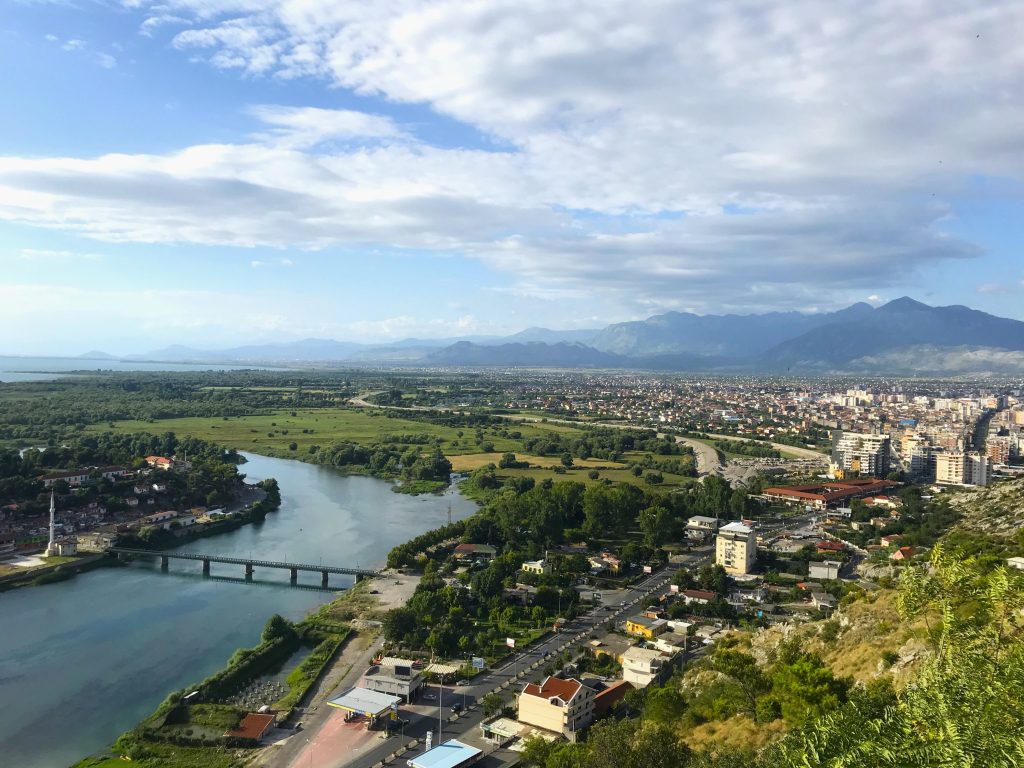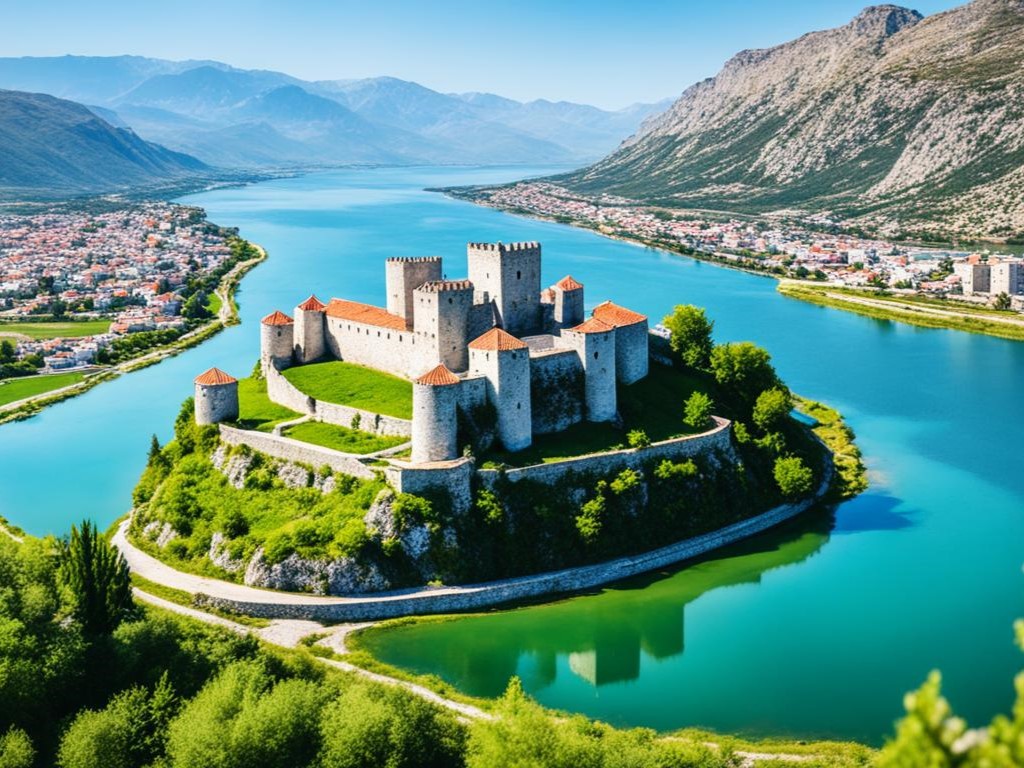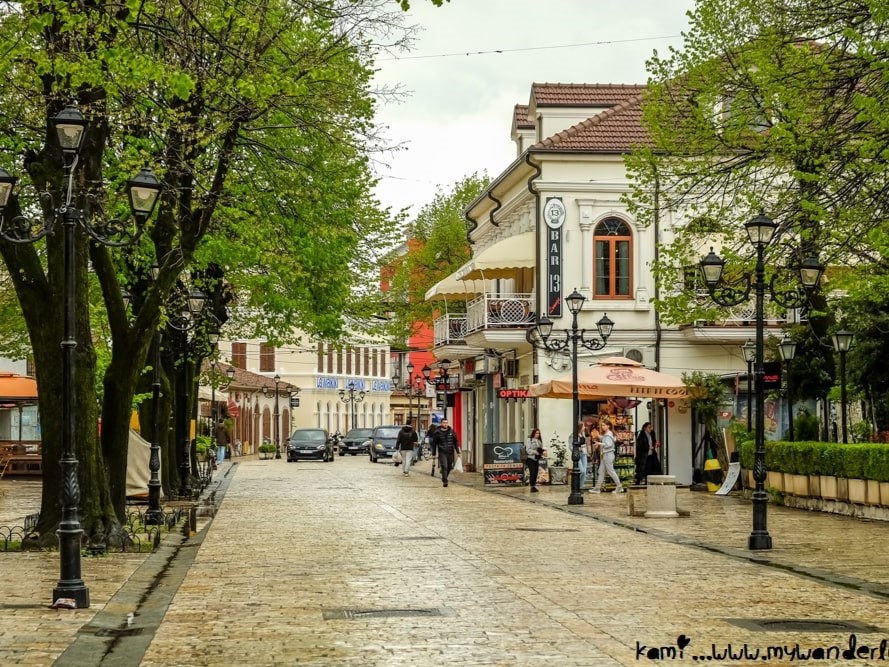Learn About the City
Shkoder
Shkodër historically known as Scodra or Scutari, is the fifth-most-populous city of the Republic of Albania and the seat of Shkodër County and Shkodër Municipality. Shkodra has been continuously inhabited since the Early Bronze Age (c. 2250–2000 BCE), and it has roughly 2,200 years of recorded history. The city sprawls across the Plain of Mbishkodra between the southern part of Lake Shkodër and the foothills of the Albanian Alps on the banks of Buna, Drin and Kir. Due to its proximity to the Adriatic Sea, Shkodër is affected by a seasonal Mediterranean climate with continental influences. An urban settlement called Skodra was founded by the Illyrian tribe of Labeatae in the 4th century BCE. It became the capital of the Illyrian kingdom under the Ardiaei and Labeatae and was one of the most important cities of the Balkans in ancient times. It has historically developed on a 130 m (430 ft) hill strategically located in the outflow of Lake Shkodër into the Buna River. The Romans annexed the city after the third Illyrian War in 168 BCE, when the Illyrian king Gentius was defeated by the Roman force of Anicius Gallus. In the 3rd century CE, Shkodër became the capital of Praevalitana, due to the administrative reform of the Roman Emperor Diocletian. With the spread of Christianity in the 4th century CE, the Archdiocese of Scodra was founded and was assumed in 535 by Byzantine Emperor Justinian I.






